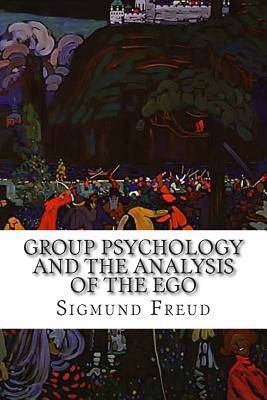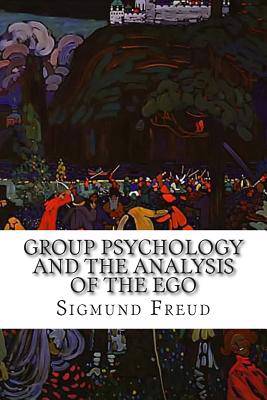
- Afhalen na 1 uur in een winkel met voorraad
- Gratis thuislevering in België vanaf € 30
- Ruim aanbod met 7 miljoen producten
- Afhalen na 1 uur in een winkel met voorraad
- Gratis thuislevering in België vanaf € 30
- Ruim aanbod met 7 miljoen producten
Zoeken
€ 12,45
+ 24 punten
Uitvoering
Omschrijving
Group Psychology and the Analysis of the Ego is a work of Sigmund Freud from the year 1921. In this monograph, Freud describes psychological mechanisms at work within mass movements. A mass, according to Freud, is a "temporary entity, consisting of heterogeneous elements that have joined together for a moment." He refers heavily to the writings of sociologist and psychologist Gustave Le Bon (1841-1931), summarizing his work at the beginning of the book in the chapter Le Bons Schilderung der Massenseele ("Le Bon's description of the group mind"). Like Le Bon, Freud says that as part of the mass, the individual acquires a sense of infinite power which allows him to act on impulses that he would otherwise have to curb as an isolated individual. These feelings of power and security allow the individual not only to act as part of the mass, but also to feel safety in numbers. This is accompanied, however, by a loss of conscious personality and a tendency of the individual to be infected by any emotion within the mass, and to amplify the emotion, in turn, by "mutual induction". Overall, the mass is "impulsive, changeable, and irritable. It is controlled almost exclusively by the unconscious." Freud distinguishes between two types of masses. One is the short-lived kind, characterized by a rapidly transient interest, such as trends. The other kind consists of more permanent and enduring masses, which are highly organized, such as the Church or the military. "The masses of the former type, so to speak, ride on the latter, like the short but high waves on the long swell of the sea." However, the same basic mental processes operate in both kinds of masses.
Specificaties
Betrokkenen
- Auteur(s):
- Uitgeverij:
Inhoud
- Aantal bladzijden:
- 106
- Taal:
- Engels
Eigenschappen
- Productcode (EAN):
- 9781514328446
- Verschijningsdatum:
- 12/06/2015
- Uitvoering:
- Paperback
- Formaat:
- Trade paperback (VS)
- Afmetingen:
- 152 mm x 229 mm
- Gewicht:
- 154 g

Alleen bij Standaard Boekhandel
+ 24 punten op je klantenkaart van Standaard Boekhandel
Beoordelingen
We publiceren alleen reviews die voldoen aan de voorwaarden voor reviews. Bekijk onze voorwaarden voor reviews.











